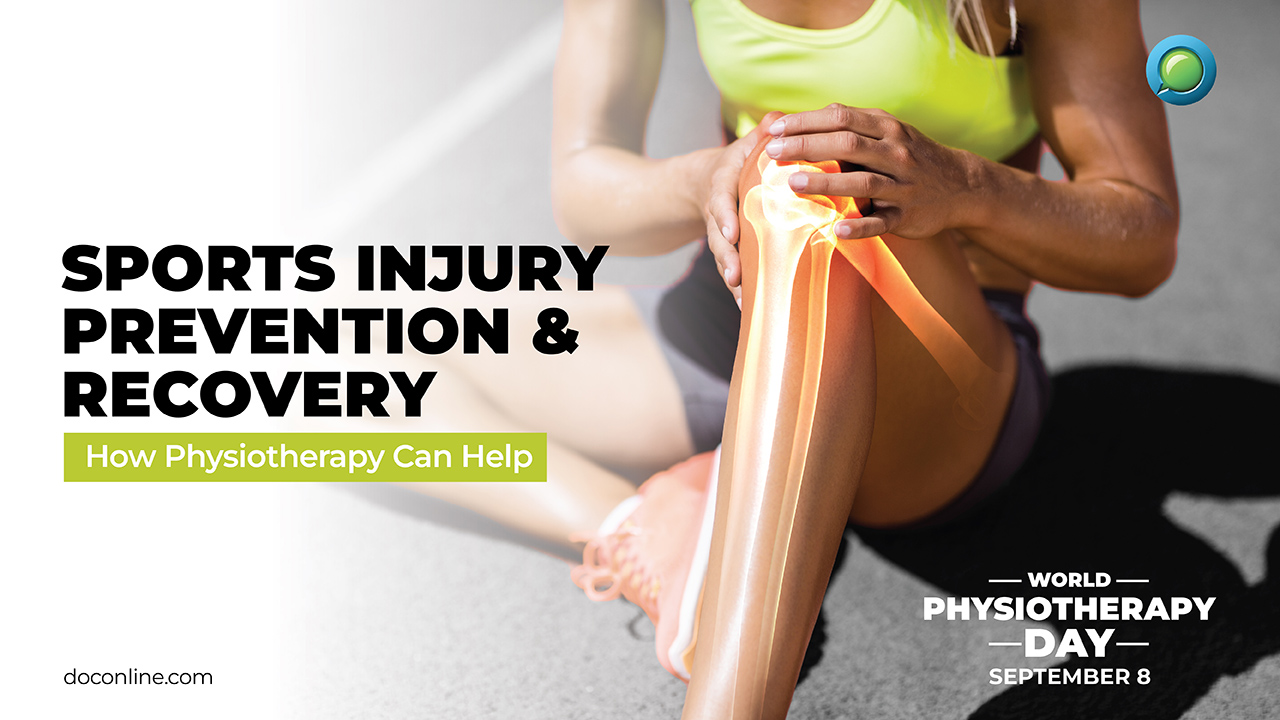Engaging in sports and physical activities offers numerous health benefits, from improved cardiovascular fitness to enhanced mental well-being. However, the risk of sports-related injuries is an inevitable part of an active lifestyle. This is where physiotherapy steps in as a valuable tool for both preventing and recovering from sports injuries. Let's delve into how physiotherapy plays a crucial role in maintaining athletes' peak performance and overall well-being.
Preventing Sports Injuries
- Assessment and Screening: Physiotherapists are skilled at assessing an athlete's biomechanics, movement patterns, and muscle imbalances. Through screenings, they can identify areas of potential vulnerability and recommend corrective exercises to address these issues before they lead to injuries.
- Customized Exercise Programs: Physiotherapists design tailored exercise programs that focus on strengthening weak muscles, improving flexibility, and enhancing overall body mechanics. These programs help athletes build a foundation of strength and flexibility that can reduce the risk of injuries.
- Proper Warm-up and Cool-down Routines: Physiotherapists educate athletes on the importance of warming up before engaging in intense physical activity and cooling down afterward. These routines help prepare muscles for action and prevent sudden strain or injury.
- Technique Correction: Incorrect movement techniques can lead to chronic injuries. Physiotherapists provide guidance on proper form, helping athletes optimize their movements to reduce stress on vulnerable joints and muscles.
Recovering from Sports Injuries
- Individualized Treatment Plans: Physiotherapists create personalized recovery plans based on the type and severity of the injury. These plans may include exercises, manual therapy, and other techniques to promote healing and regain strength.
- Pain Management: Through various modalities like ultrasound, electrical stimulation, and hot/cold therapy, physiotherapy helps manage pain and reduce inflammation, allowing athletes to participate in their recovery more actively.
- Restoring Range of Motion: After an injury, joints and muscles can become stiff. Physiotherapists use techniques like stretching, joint mobilization, and soft tissue manipulation to restore the normal range of motion.
- Progressive Rehabilitation: Physiotherapy involves a gradual progression of exercises that challenge injured areas in a controlled manner. This approach helps rebuild strength and stability while minimizing the risk of reinjury.
- Functional Training: Physiotherapists focus on exercises that mimic real-life movements, ensuring that athletes regain the skills necessary for their specific sport or activity.
- Injury Prevention Education: As athletes recover, physiotherapists educate them about factors that contributed to the injury and how to prevent similar issues in the future. This empowers athletes to make informed choices and adopt healthier habits.
Long-Term Benefits of Physiotherapy
- Enhanced Performance: Physiotherapy doesn't just aid recovery; it can also improve an athlete's overall performance. By addressing underlying issues, athletes can achieve higher levels of fitness and agility.
- Reduced Recurrence: Physiotherapy focuses on addressing the root causes of injuries, reducing the likelihood of recurring issues and chronic pain.
- Improved Quality of Life: Beyond sports, physiotherapy enhances an individual's quality of life by promoting better mobility, reducing pain, and fostering overall physical well-being.
Physiotherapy is an indispensable tool for athletes aiming to prevent injuries, recover from setbacks, and optimize their performance. By addressing both the physical and biomechanical aspects of sports-related issues, physiotherapists play a pivotal role in supporting athletes' journey to optimal health and athletic excellence. Whether you're a professional athlete or a recreational enthusiast, integrating physiotherapy into your training and recovery routine can make a significant difference in your overall well-being and athletic longevity.













